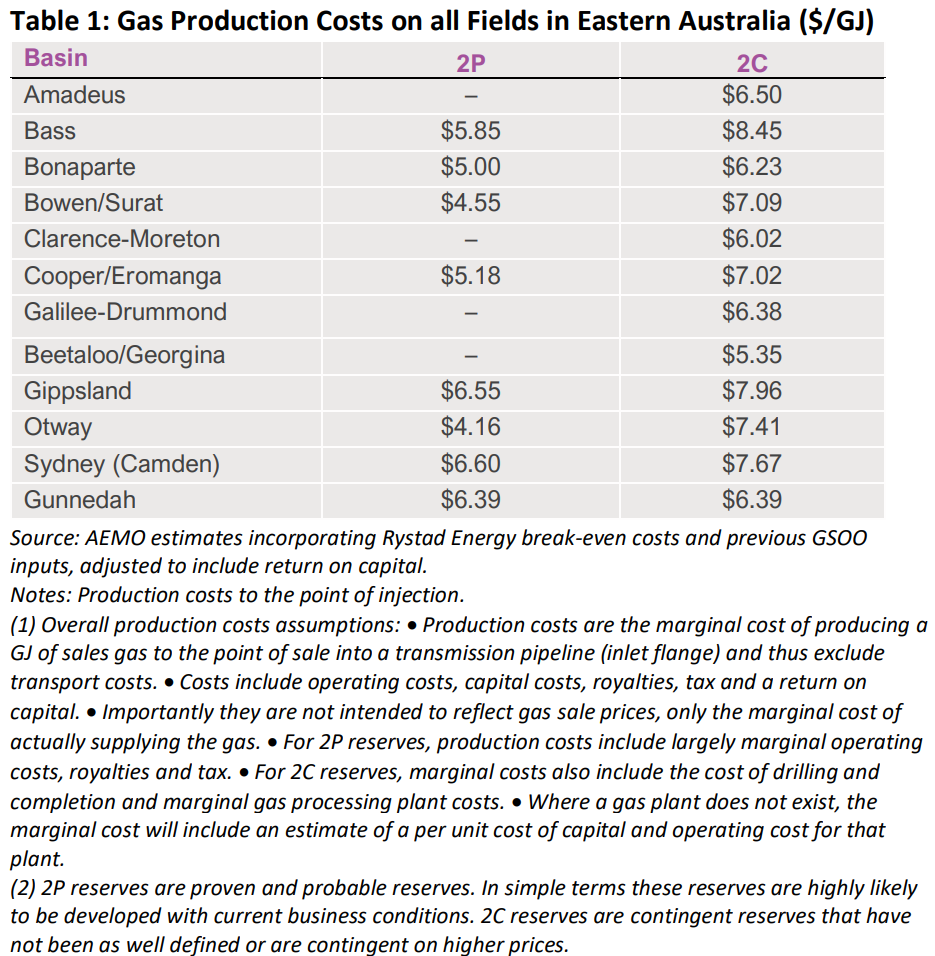I hope the fake left still loves its ABC because it sure doesn’t love them.
Jacob Greber is a graduate of the AFR businessomics school of journalism, and he lines up the single most biased piece of junk journalism on the gas debate that I can recall.
Is Saul Kavonic, former strategic advisor at Woodside, and head of energy research at MST Marquee, which raises capital for small and medium-sized gas firms, objective? Yes, says the ABC!
“The Coalition have boxed themselves in here just like Labor did with its $275 lower price position,” Kavonic wrote in a note to clients obtained by the ABC on Friday.
“It may prove a political noose at the subsequent election. $10 per gigajoule will not sustain gas investment.”
Mr Kavonic said the Coalition’s policy would reduce investment in domestic supply capacity to the point that “breaking export contracts or gas shortages will be the inevitable result”.
If it does not sustain gas investment, then that is only because the gas sector has collapsed into market failure. After all, all East Coast reserves make excellent money at that price.
Rystad Energy and the AEMO established the facts in 2022.

This is all in costs, so it includes various sunk costs already written down in the gas smash of 2015. The marginal cash cost to produce much of this gas is far lower today.
And that is the point. We need gas reservation because market failure is the only problem. The gas export cartel controls or unduly influences more than 90% of East Coast reserves.
To argue that reservation won’t work because the cartel won’t let it is to presuppose its own conclusion.
Next, the AQBC coughs up some ivory tower buffoon.
David Close, director of the University of Queensland Gas and Energy Transition Research Centre, said he was “aghast that the party of the free market has fallen victim to poorly conceived ideas”.
“It couldn’t have been fully thought through,” he said.
Professor Close said the Coalition was making a similar mistake to Labor’s late 2022 decision to legislate a $12 per gigajoule price cap on gas, which led to a freeze on new gas production investment.
Well, duh. Professor Close is describing market failure as the cartel bullied the government out of the way with threats.
“The freeze” was not the result of an unprofitably low price signal imposed by the government (on the contrary, it was ridiculously generous); it was the cartel saying it would not be constrained in any way.
Finally, it wouldn’t be a corrupt ABC article about gas without the intellectual godfather of the export cartel muddying the waters for Grattan Institute sponsor and lead gas export cartelier, Origin Energy.
Grattan Institute energy director Tony Wood said the policy had “superficial appeal” since there was currently not enough gas to meet the needs of the east market, leading to “unacceptably high” gas and electricity prices.
“However, the opposition has not explained what the process would be and how it would work in practice. And over-supplied markets do not tend to remain that way,” he said.
“It would surely be easier just to place an obligation on the LNG producers to contract ahead to meet the projected demand at a price no higher than whatever is considered a fair price.”
Sure, do that, then. But do it with purpose, not like Labor’s fake $12Gj cap with massive carve-outs for everybody and exempting the spot market.
The main reason the East Coast gas cartel is more difficult to manage with reservation policies is that its sources of gas (in QLD) are largely unconventional.
As coal seam gas, its capital investment is ongoing because wells exhaust far more quickly than they do in conventional extraction, which pumps out of a giant reservoir of the resource for many years after an initial investment.
This means the Australian gas cartel can reduce costs along with supply without damaging the balance sheet. This would not be possible in conventional gas extraction model of upfront costs.
But this does NOT make it impossible to manage. You simply have to find a mechanism that bullies the cartel into submission.
This could be an export levy. It could be huge fines. It could be production targets and price caps.
The Dutton proposal of producing a percentage above East Coast demand and combining it with huge fines looks workable to me.
If it is not, then summon the cartel captains to Canberra and humiliate them in the PM’s office while threatening an export levy that puts all profits at risk.
Crashing share prices will do the rest.
Your ABC needs to wake up to the national interest, regardless of who represents it.

